#energy fuels
Text


#navajo nation#navajo#uranium#nuclear waste#nuclear poisoning#radioactive poisoning#environmental justice#support bipoc#support indigenous people#support native people#environmental action#environmental awareness#environmental activism#2024#united states#usa#united states of america#southwest#navajo uranium#arizona#utah#canada#energy fuels
1 note
·
View note
Text

Actually, the bars aren't so bad anymore.
Think you can fix him? Read about his care instructions over at Tiger Tiger)
#Tiger Tiger#ludovica bonnaire#rakkatak ann#I thought I liked him (in a way he has a great design and is an effective antagonist) and *then* he licked the spit.#Now I need to create a lab to study him in. My god. He gives me hives. I need to see more of him NOW.#Something is wrong with him and it fascinates me.#He is everything I like in an antagonist. A little bit stupid and unintentionally funny while being a genuine threat.#I call him rat man they way I want to see him skitter around on the floor.#Call him rat man the way he might need a little cheerio snack and some enrichment.#I am so...so tired and I am struggling to keep the jokes train going.#Please continue to read Tiger Tiger! Every new reader fuels my energy gauge.#Sorry I've been missing so many days of posting. I'll try to make up with some extra posts this week!
2K notes
·
View notes
Text
"It is 70 years since AT&T’s Bell Labs unveiled a new technology for turning sunlight into power. The phone company hoped it could replace the batteries that run equipment in out-of-the-way places. It also realised that powering devices with light alone showed how science could make the future seem wonderful; hence a press event at which sunshine kept a toy Ferris wheel spinning round and round.
Today solar power is long past the toy phase. Panels now occupy an area around half that of Wales, and this year they will provide the world with about 6% of its electricity—which is almost three times as much electrical energy as America consumed back in 1954. Yet this historic growth is only the second-most-remarkable thing about the rise of solar power. The most remarkable is that it is nowhere near over.
To call solar power’s rise exponential is not hyperbole, but a statement of fact. Installed solar capacity doubles roughly every three years, and so grows ten-fold each decade. Such sustained growth is seldom seen in anything that matters. That makes it hard for people to get their heads round what is going on. When it was a tenth of its current size ten years ago, solar power was still seen as marginal even by experts who knew how fast it had grown. The next ten-fold increase will be equivalent to multiplying the world’s entire fleet of nuclear reactors by eight in less than the time it typically takes to build just a single one of them.
Solar cells will in all likelihood be the single biggest source of electrical power on the planet by the mid 2030s. By the 2040s they may be the largest source not just of electricity but of all energy. On current trends, the all-in cost of the electricity they produce promises to be less than half as expensive as the cheapest available today. This will not stop climate change, but could slow it a lot faster. Much of the world—including Africa, where 600m people still cannot light their homes—will begin to feel energy-rich. That feeling will be a new and transformational one for humankind.
To grasp that this is not some environmentalist fever dream, consider solar economics. As the cumulative production of a manufactured good increases, costs go down. As costs go down, demand goes up. As demand goes up, production increases—and costs go down further. This cannot go on for ever; production, demand or both always become constrained. In earlier energy transitions—from wood to coal, coal to oil or oil to gas—the efficiency of extraction grew, but it was eventually offset by the cost of finding ever more fuel.
As our essay this week explains, solar power faces no such constraint. The resources needed to produce solar cells and plant them on solar farms are silicon-rich sand, sunny places and human ingenuity, all three of which are abundant. Making cells also takes energy, but solar power is fast making that abundant, too. As for demand, it is both huge and elastic—if you make electricity cheaper, people will find uses for it. The result is that, in contrast to earlier energy sources, solar power has routinely become cheaper and will continue to do so.
Other constraints do exist. Given people’s proclivity for living outside daylight hours, solar power needs to be complemented with storage and supplemented by other technologies. Heavy industry and aviation and freight have been hard to electrify. Fortunately, these problems may be solved as batteries and fuels created by electrolysis gradually become cheaper...
The aim should be for the virtuous circle of solar-power production to turn as fast as possible. That is because it offers the prize of cheaper energy. The benefits start with a boost to productivity. Anything that people use energy for today will cost less—and that includes pretty much everything. Then come the things cheap energy will make possible. People who could never afford to will start lighting their houses or driving a car. Cheap energy can purify water, and even desalinate it. It can drive the hungry machinery of artificial intelligence. It can make billions of homes and offices more bearable in summers that will, for decades to come, be getting hotter.
But it is the things that nobody has yet thought of that will be most consequential. In its radical abundance, cheaper energy will free the imagination, setting tiny Ferris wheels of the mind spinning with excitement and new possibilities.
This week marks the summer solstice in the northern hemisphere. The Sun rising to its highest point in the sky will in decades to come shine down on a world where nobody need go without the blessings of electricity and where the access to energy invigorates all those it touches."
-via The Economist, June 20, 2024
#solar#solar power#solarpunk#hopepunk#humanity#electricity#clean energy#solar age#renewables#green energy#solar energy#renewable energy#solar panels#fossil fuels#good news#hope#climate change#climate hope
1K notes
·
View notes
Text
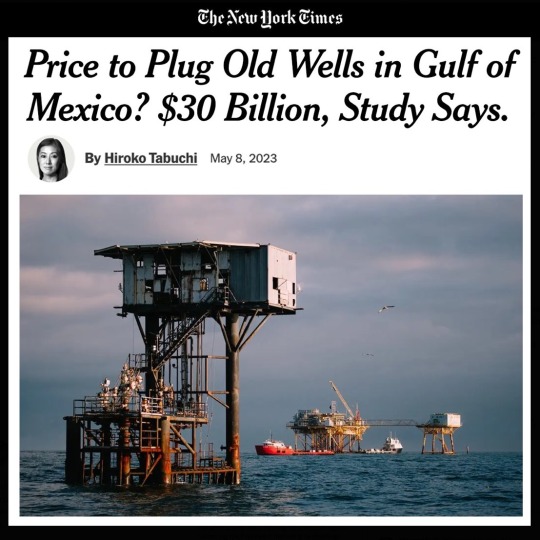
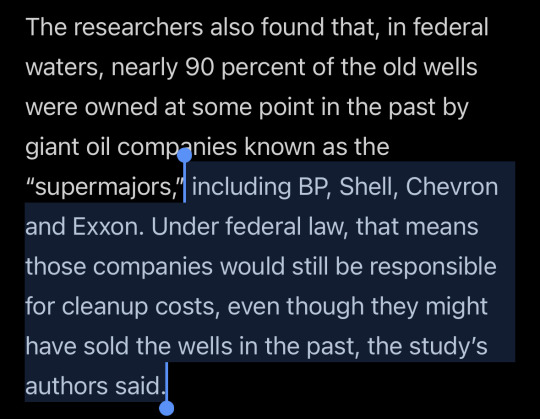
Source
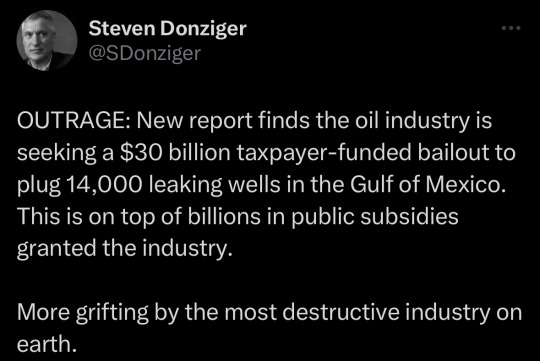
#climate change#fossil fuels#politics#us politics#government#the left#environment#water#clean water#energy#twitter post#progressive#green new deal#ban fossil fuels#environmentalism#environmental justice
12K notes
·
View notes
Text
An end to the climate emergency is in our grasp
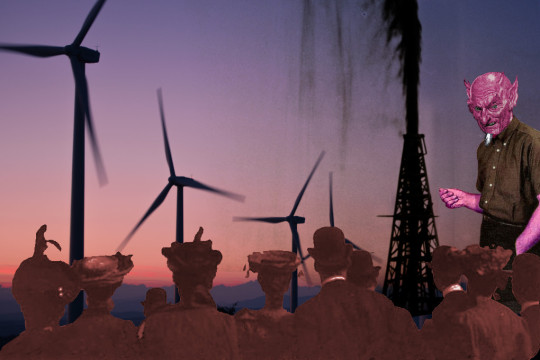
On June 20, I'm keynoting the LOCUS AWARDS in OAKLAND.

The problem with good news in the real world is that it's messy. Neat happy endings are for novels, not the real world, and that goes double for the climate emergency. But even though good climate news is complicated and nuanced, that doesn't mean it shouldn't buoy our spirits and fill our hearts with hope.
The big climate news this past week is the National Oceanic and Atmospheric Administration's clarion call about surging CO2 levels – the highest ever – amid a year that is on track to have the largest and most extreme series of weather events in human history:
https://www.noaa.gov/news-release/during-year-of-extremes-carbon-dioxide-levels-surge-faster-than-ever
This is genuinely alarming and you – like me – have probably experienced it as a kind of increase in your background radiation of climate anxiety. Perhaps you – like me – even experienced some acute, sit-bolt-upright-in-bed-at-2AM anxiety as a result. That's totally justifiable. This is very real, very bad news.
And yet…
The news isn't all bad, and even this terrible dispatch from the NOAA is best understood in context, which Bill McKibben provides in his latest newsletter post, "What You Want is an S Curve":
https://billmckibben.substack.com/p/what-you-want-is-an-s-curve
Financier and their critics should all be familiar with Stein's Law: "anything that can't go on forever will eventually stop." This is true outside of finance as well. One of the reasons that we're seeing such autophagic panic from the tech companies is that their period of explosive growth is at an end.
For years, they told themselves that they were experiencing double-digit annual growth because they were "creating value" and "innovating" but the majority of their growth was just a side-effect of the growth of the internet itself. When hundreds of millions of people get online every year, the dominant online services will, on average, gain hundreds of millions of new users.
But when you run out of people who don't have internet access, your growth is going to slow. How can it not? Indeed, at that point, the only ways to grow are to either poach users from your rivals (through the very expensive tactics of massive advertising and sales-support investments, on top of discounts and freebies as switching enticements), or to squeeze your own users for more.
That's why the number of laptops sold in America slowed down. It's why the number of cellphones sold in America slowed down. It's why the number of "smart home" gizmos slowed down.
Even the steepest hockey-stick-shaped exponential growth curve eventually levels off and becomes an S-curve, because anything that can't go on forever will eventually stop.
One way or another, the world's carbon emissions will eventually level off. Even if we drive ourselves to (or over) the brink of extinction and set up the conditions for wildfires that release all the carbon stored in all the Earth's plants, the amount of carbon we pump into the atmosphere has to level off.
Rendering the Earth incapable of sustaining human civilization (or life) is the ultimate carbon reduction method – but it's not my first choice.
That's where McKibben's latest newsletter comes in. He cites a new report from the Rocky Mountain Institute, which shows a major reversal in our energy sources, a shift that will see our energy primarily provided by renewables, with minimal dependence on fossil fuels:
https://rmi.org/insight/the-cleantech-revolution/
The RMI team says that in this year or next, we'll have hit peak demand for fossil fuels (a fact that is consistent with NOAA's finding that we're emitting more CO2 than ever). The reason for this is that so much renewable energy is about to come online, and it is so goddamned cheap, that we are about to undergo a huge shift in our energy consumption patterns.
This past decade saw a 12-fold increase in solar capacity, a 180-fold increase in battery storage, and a 100-fold increase in EV sales. China is leading the world in a cleantech transition, with the EU in close second. Cleantech is surging in places where energy demand is also still growing, like India and Vietnam. Fossil fuel use has already peaked in Thailand, South Africa and every country in Latin America.
We're on the verge of solar constituting an absolute majority of all the world's energy generation. This year, batteries will overtake pumped hydro for energy storage. Every cleantech metric is growing the way that fossil fuels did in previous centuries: investment, patents, energy density, wind turbine rotor size. The price of solar is on track to halve (again) in the next decade.
In short, cleantech growth looks like the growth of other technologies that were once rarities and then became ubiquitous overnight: TV, cellphones, etc. That growth isn't merely being driven by the urgency of the climate emergency: it's primarily a factor of how fucking great cleantech is:
https://rmi.org/wp-content/uploads/2024/05/the_incredible_inefficiency_of_fossils.pdf
Fossil fuels suck. It's not just that they wreck the planet, or that their extraction is both politically and environmentally disastrous. They just aren't a good way to make energy. About a third of fossil fuel energy is wasted in production and transportation. A third! Another third is wasted turning fossil fuels into energy. Two thirds! The net energy efficiency of fossil fuels is about 37%.
Compare that with cleantech. EVs convert electricity to movement with 80-90% efficiency. Heat pumps are 300% efficient (the main fuel for your heat pump is the heat in the atmosphere, not the electricity it draws).
Cleantech is just getting started – it's still in the hockey-stick phase. That means those efficiency numbers are only going up. Rivian just figured out how to remove 1.6 miles of copper wire from each vehicle. That's just one rev – there's doubtless lots of room for more redesigns that will further dematerialize EVs:
https://insideevs.com/news/722265/rivian-r1s-r1t-wiring/
As McKibben points out, there's been a lot of justifiable concern that electrification will eventually use up all our available copper, but copper demand has remained flat even as electrification has soared – and this is why. We keep figuring out new ways to electrify with fewer materials:
https://www.chemanalyst.com/NewsAndDeals/NewsDetails/copper-wire-price-remains-stable-amidst-surplus-supply-and-expanding-mining-25416#:~:text=Global%20Copper%20wire%20Price%20Remains%20Stable%20Amidst%20Surplus%20Supply%20and%20Expanding%20Mining%20Activities
This is exactly what happened with previous iterations of tech. The material, energy and labor budgets of cars, buildings, furniture, etc all fell precipitously every time there was a new technique for manufacturing them. Renewables are at the start of that process. There's going to be a lot of this dematerialization in cleantech. Calculating the bill of materials for a planetary energy transition isn't a matter of multiplying the materials in current tech by the amount of new systems we'll need – as we create those new systems, we will constantly whittle down their materials.
What's more, global instability drives cleantech uptake. The Russian invasion of Ukraine caused a surge in European renewables. The story that energy prices are rising due to renewables (or carbon taxes) is a total lie. Fossil fuels are getting much more expensive, thanks to both war and rampant, illegal price-fixing:
https://www.thebignewsletter.com/p/an-oil-price-fixing-conspiracy-caused
If not for renewables, the incredible energy shocks of the recent years would be far more severe.
The renewables story is very good and it should bring you some comfort. But as McKibben points out, it's still not enough – yet. The examples of rapid tech uptake had big business on their side. America's living rooms filled with TV because America's largest businesses pulled out all the stops to convince everyone to buy a TV. By contrast, today's largest businesses – banks, oil companies and car companies – are working around the clock to stop cleantech adoption.
We're on track to double our use of renewables before the decade is over. But to hold to the (already recklessly high) targets from the Paris Accord, we need to triple our renewables usage. As McKibben says, the difference between doubling and tripling our renewables by 2030 is the difference between "survivable trouble" and something much scarier.
The US is experiencing a welcome surge in utility scale solar, but residential solar is stalling out as governments withdraw subsidies or even begin policies that actively restrict rooftop solar:
https://twitter.com/curious_founder/status/1798049929082097842?s=51
McKibben says the difference between where we are now and bringing back the push for home solar generation is the difference between "fast" and "faster" – that is the difference between tripling renewables by 2030 (survivable) and doubling (eek).
Capitalism stans who argue that we can survive the climate emergency with market tools will point to the good news on renewable and say that the market is the only way to transition to renewables. It's true that market forces are partly responsible for this fast transition. But the market is also the barrier to a faster (and thus survivable) transition. The oil companies, the banks who are so invested in fossil fuels, the petrostates who distort the world's politics – they're why we're not much farther along.
The climate emergency was never going to be neatly solved. We weren't going to get a neat novelistic climax that saw our problems sorted out in a single fell swoop. We're going to be fighting all the way to net zero, and after that, we'll still have decades of climate debt to pay down: fires, floods, habitat loss, zoonotic plagues, refugee crises.
But we should take our wins. Even if we're far from where we need to be on renewables, we're much farther along on renewables than we had any business hoping for, just a few years ago. The momentum is on our side. It's up to us to use that momentum and grow it. We're riding the hockey-stick, they're on that long, flat, static top of the S-curve. Their curve is leveling off and will start falling, ours will grow like crazy for the rest of our lives.

If you'd like an essay-formatted version of this post to read or share, here's a link to it on pluralistic.net, my surveillance-free, ad-free, tracker-free blog:
https://pluralistic.net/2024/06/12/s-curve/#anything-that-cant-go-on-forever-eventually-stops
#pluralistic#s-curves#bill mckibben#climate emergency#renewables#energy transition#energy#solar#wind#fossil fuels#climate
897 notes
·
View notes
Text
#clean energy#green energy#sustainability#climate change#environment#good news#hope#climate anxiety#fossil fuels
759 notes
·
View notes
Text
Israel relies on crude oil and refined products from overseas to run its large fleet of fighter jets, tanks and other military vehicles.
The research, which was commissioned by the non-profit Oil Change International and shared exclusively with the Guardian, examines this fuel supply chain, which since the current conflict in Gaza began appears to have relied heavily on fossil fuels from Azerbaijan, Kazakhstan, Russia, Brazil, Gabon and the US. The analysis by Data Desk, a UK-based tech consultancy firm investigating the fossil fuel industry, suggests the major oil companies facilitating the fuel supplies include BP, Chevron, ExxonMobil, Shell and TotalEnergies.
[...]
Human rights experts said that countries and corporations supplying oil to Israeli armed forces may be complicit in war crimes and genocide.
“The countries and companies that have continued to supply oil to the Israeli military since the decision of the international court of justice are contributing to horrible human rights violations and may be complicit in genocide,” said David Boyd, the United Nations special rapporteur on human rights and the environment.
“Oil firms must ensure they’re not in the business of helping to entrench Israel’s apartheid system or fuelling war crimes and possible genocide in Gaza,” said Peter Frankental, Amnesty International UK’s economic affairs director, adding that it was incumbent on every company with commercial ties to the Israeli military to do “due diligence”.
Thu 14 Mar 2024
380 notes
·
View notes
Text
Solarpunk is not archievable under Capitalism

Okay, let me make one thing very clear: We will never have a Solarpunk future as long as we live under capitalism. Again and again I will find people, who have fallen in love with the idea of Solarpunk, but are unwilling to consider any alternative to capitalism. So, please, let me quickly explain what that just is not gonna work out that way. There will be no Solarpunk under capitalism. Because the incentives of capitalism are opposing anything that Solarpunk stands for.
So let me please run over a few core points.
What is capitalism?
One issue that a lot of people do seem to have is understanding what capitalism even is. The defining attribute of capitalism is that "the means of production" (e.g. the things needed to create things) are privately owned and as such the private owners will decide both what gets created through it and who will get a share in any profits created through them. The ultimate goal in this is, to generate as large as a profit as possible, ideally more and more profit with every year. In real terms this means, that most of those means of productions in the way of companies and the like are owned mostly by shareholders, that is investors who have bought part of the company.
While capitalism gets generally thaught in schools with this entire idea of the free market, that... actually is not the central aspect of capitalism. I would even go so far to argue something else...
The market is actually not free and cannot be free
The idea of the free market is, that prices are controlled by the concept of supply and demand, with the buyer in the end deciding on whether they want to spend their money on something and being able to use that power to also enact control on the supplier.
However... that is actually not what is happening. Because it turns out that the end consumer has little influence, because they are actually not actively participating in the market. The market mainly is something that is happening between multimillionaires. It is their demand (or the lack thereoff) that is the influence. Investors, mainly. Which is logical. In a system, where the power to buy is deciding, the person who can spend multiple millions is gonna have a lot more power, than the person who has twenty bucks to their name.
Hence: 99% of all people are not participating in anything resembling a free market, and the remaining 1% are not interested in such a system.
Money under capitalism
One thing everyone needs to understand is, that for the most part money under capitalism is a very theoretical concept. It might be real for the average joe, who for the most part will not have more than maybe ten grand to their name, but it is not real to multi millionaires, let alone billionairs. Something that is going to be thrown around a lot is the concept of "net worth". But what you need to realize is that this net worth is not real money. It does not exist. It is the estimated worth of stuff these people own. Maybe houses and land, maybe private jets, maybe shares in companies and other things. These people's power and literal worth is tied to them being able theoretically able to sell these assets for money.
In fact a lot of these very rich people do not even have a lot of liquid money. So money they can spend. In fact there are quite a few billionairs who do not even own a million in liquidated money. The money they use in everyday life they borrow from banks, while putting their assets up as a security.
Why capitalism won't abolish fossil fuels
Understanding this makes it quite easy to understand why the capitalists cannot have fossil fuels ending. Because a lot of them own millions, at times billions in fossil fuel related assets. They might own a coal mine, or a fracking station, or maybe an offshore rig, or a power plant burning fossil fuels. At times they have 50% or more of their net worth bound in assets like this. If we stopped using fossil fuels, all those assets would become useless from one day to the next. Hence it is not in the interest of these very rich people to have that happen.
But it goes further than that, because politicians cannot have that happen either. Because the entire economy is build around these assets existing and being used as leverage and security for other investments.
Why capitalism won't build walkable cities and infrastructure
The same goes very much for the entire infrastructure. Another thing a lot of people have invested a lot of money into is cars. Not physical cars they own, but cars manufacturing. So, if we were building walkable cities with bikelanes and public transportation, a lot less people would buy cars, those manufactoring factories becoming worthless and hence once more money... just vanishing, that would otherwise be further invested.
Furthermore, even stuff like investing into EVs is a touch call to get to happen, because the investors (whose theoretical and not real money is tied to those manufacturers) want to see dividents at the end of the quartal. And if the manufactuerer invested into changing their factories to build EVs for a while profits would go down due to that investment. Hence, capitalism encourages them not doing that.
Why capitalism won't create sustainable goods
A lot of people will decry the fact that these days all goods you buy will break within two years, while that old washing machine your grandparents bought in 1962 is still running smoothly. To which I say: "Obviously. Because they want to make profits. Hence, selling you the same product every two years is more profitable."
If you wonder: "But wasn't that the same in 1962?" I will answer: "Yes. But in 1962 the market was still growing." See, with the post war economic boom more and more people got more divestable income they could spend. So a lot of companies could expect to win new costumers. But now the market is saturated. There is not a person who could use a washing machine, who does not have one. Hence, that thing needs to break, so they can sell another one.
The market incentive is against making sustainable, enduring products, that can be repaired. They would rather have you throw your clothing, your smartphone and your laptop away every two years.
Why workers will always be exploited under capitalism
One other central thing one has to realize about capitalism is that due to the privitization of the means of production the workers in a capitalist system will always be exploited. Because they own nothing, not even their own work. Any profit the company makes is value that has in the end been created by the workers within the company. (Please note, that everyone who does not own their work and cannot decide what happens to the value created by it is a worker. No matter whether they have a blue collar or a white collar job.)
That is also, why there is the saying: All profit is unpaid wages.
Under capitalism the profits will get divided up under the shareholders (aka the investors), while many of the workers do not even have enough money to just... live. Hence, good living standards for everyone are explicitly once more against the incentives of capitalism.
Why there won't be social justice under capitalism
Racism, sexism and also the current rise of queermisia are all a result of capitalism and have everything to do with capitalist incentives. Because the capitalists, so the people who own the means of production, profit from this discrimination. This is for two reasons.
For once having marginalized people creates groups that are easier exploitable. Due to discrimination these people will have a harder time finding a job and living quarters, making them more desperate and more likely to take badly paid jobs. Making it easier to exploit them for the profit of the capitalists.
A workforce divided through prejudice and discrimination will have a harder time to band together in unions and strikes. The crux of the entire system si, that it is build on the exploitation of workers - but if the workers stopped working, the system would instantly collapse. Hence the power of strikes. So, dividing the workforce between white and non-white, between queer and straight, between abled and disabled makes it easier to stop them from banding together, as they are too busy quaralling amoung themselves.
Why we won't decolonize under capitalism
Colonialism has never ended. Even now a lot of natural ressources and companies in the former colonies are owned by western interest. And this will stay that way, because this way the extraction of wealth is cheaper - making it more profitable. Colonialism has never ended, it has only gotten more subtle - and as long as more money can be made through this system, it will not end.
There won't be Solarpunk under capitalism
It is not your fault, if you think that capitalism cannot end. You have been literally taught this for as long as you can think. You never have been given the information about what capitalism is and how it works. You have never been taught the alternative mechanisms and where and when they were implemented.
You probably look at Solarpunk and think: "Yeah, that... that looks neat. I want that." And here is the thing: I want that, too.
But I have studied economics. Literally. And I can tell you... it does not work. It will not create better living situations for everyone. It will not save the world. Because in the end the longterm goals are not compatible with a capitalistic system.
I know it is fucking scary to be told: "Yeah, change the world you know in massive ways - or the world will end." But... it is just how the things are standing.
You can start small, though. Join a local party. Join a union. Join a mutual aid network. Help repair things. Help people just deal. Our power lies in working together. That is, in the end, what will get us a better future.

#solarpunk#anarchism#anti capitalism#unions#environmentalism#save the planet#explanation#sustainability#renewable energy#end fossil fuels#communism
768 notes
·
View notes
Text


Same Flavor🤔💗
I knoooow we barely know anything about cyno and alhaitham but listen 15 sec of them fighting is enough for them to fit in my "enemies to lovers" group ships! Even if canon differs this will live rent free in my head🥺🥰 Also sorry if its a little ooc for kokomi but they did fought a war
#chilumi#cytham#kokosara#lumine x childe#kokomi x sara#cyno x alhaitham#genshin impact#anything i draw from here on out is super self indulgent#and probably doodles#i have no energy but ships fuel me *v*#HUMOR ME#also @ me if you like all 3🥺#you can see this as platonic i dont miiind#idraw#1k#haino
4K notes
·
View notes
Text
203 notes
·
View notes
Text


One recent autumn afternoon, I watched the Atlantic gusts collide with the cliffs that rise above Nazaré, Portugal. Rain pelted down, and the world-renowned swells rose into walls of water that even the most death-defying surfers reach only via Jet Ski. For me, this looked like a rained-out, late-season beach getaway, but for the sliver of Iberia that is Portugal, it looked like a bright future. That weekend, the nation of 10 million ran on nothing but wind, solar and hydropower.
As it turned out, those rainy, blustery days were just a warmup. Portugal produced more than enough renewable power to serve all its customers for six straight days, from October 31 to November 6.
[Source: Canary Media, November 13ᵗʰ, 2023]
#environmental#renewable energy#energy#wind#hydro#solar#fossil fuels#portugal#mine#links#articles#news
299 notes
·
View notes
Text
"A 1-megawatt sand battery that can store up to 100 megawatt hours of thermal energy will be 10 times larger than a prototype already in use.
The new sand battery will eliminate the need for oil-based energy consumption for the entire town of town of Pornainen, Finland.
Sand gets charged with clean electricity and stored for use within a local grid.
Finland is doing sand batteries big. Polar Night Energy already showed off an early commercialized version of a sand battery in Kankaanpää in 2022, but a new sand battery 10 times that size is about to fully rid the town of Pornainen, Finland of its need for oil-based energy.
In cooperation with the local Finnish district heating company Loviisan Lämpö, Polar Night Energy will develop a 1-megawatt sand battery capable of storing up to 100 megawatt hours of thermal energy.
“With the sand battery,” Mikko Paajanen, CEO of Loviisan Lämpö, said in a statement, “we can significantly reduce energy produced by combustion and completely eliminate the use of oil.”
Polar Night Energy introduced the first commercial sand battery in 2022, with local energy utility Vatajankoski. “Its main purpose is to work as a high-power and high-capacity reservoir for excess wind and solar energy,” Markku Ylönen, Polar Nigh Energy’s co-founder and CTO, said in a statement at the time. “The energy is stored as heat, which can be used to heat homes, or to provide hot steam and high temperature process heat to industries that are often fossil-fuel dependent.” ...
Sand—a high-density, low-cost material that the construction industry discards [Note: 6/13/24: Turns out that's not true! See note at the bottom for more info.] —is a solid material that can heat to well above the boiling point of water and can store several times the amount of energy of a water tank. While sand doesn’t store electricity, it stores energy in the form of heat. To mine the heat, cool air blows through pipes, heating up as it passes through the unit. It can then be used to convert water into steam or heat water in an air-to-water heat exchanger. The heat can also be converted back to electricity, albeit with electricity losses, through the use of a turbine.
In Pornainen, Paajanen believes that—just by switching to a sand battery—the town can achieve a nearly 70 percent reduction in emissions from the district heating network and keep about 160 tons of carbon dioxide out of the atmosphere annually. In addition to eliminating the usage of oil, they expect to decrease woodchip combustion by about 60 percent.
The sand battery will arrive ready for use, about 42 feet tall and 49 feet wide. The new project’s thermal storage medium is largely comprised of soapstone, a byproduct of Tulikivi’s production of heat-retaining fireplaces. It should take about 13 months to get the new project online, but once it’s up and running, the Pornainen battery will provide thermal energy storage capacity capable of meeting almost one month of summer heat demand and one week of winter heat demand without recharging.
“We want to enable the growth of renewable energy,” Paajanen said. “The sand battery is designed to participate in all Fingrid’s reserve and balancing power markets. It helps to keep the electricity grid balanced as the share of wind and solar energy in the grid increases.”"
-via Popular Mechanics, March 13, 2024
--
Note: I've been keeping an eye on sand batteries for a while, and this is really exciting to see. We need alternatives to lithium batteries ASAP, due to the grave human rights abuses and environmental damage caused by lithium mining, and sand batteries look like a really good solution for grid-scale energy storage.
--
Note 6/13/24: Unfortunately, turns out there are substantial issues with sand batteries as well, due to sand scarcity. More details from a lovely asker here, sources on sand scarcity being a thing at the links: x, x, x, x, x
#sand#sand battery#lithium#lithium battery#batteries#technology news#renewable energy#clean energy#fossil fuels#renewables#finland#good news#hope#climate hope
1K notes
·
View notes
Text
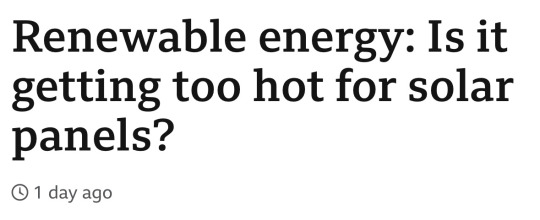

Source

#capitalism#government#solar energy#solar panels#solar power#renewable electricity#climate change#news#current events#the left#ban fossil fuels#green energy#green new deal
915 notes
·
View notes
Text
WaPo: How car bans and heat pump rules drive voters to the far right
Shannon Osaka at WaPo:
More than a decade ago, the Netherlands embarked on a straightforward plan to cut carbon emissions. Its legislature raised taxes on natural gas, using the money earned to help Dutch households install solar panels. By most measures, the program worked: By 2022, 20 percent of homes in the Netherlands had solar panels, up from about 2 percent in 2013. Natural gas prices, meanwhile, rose by almost 50 percent.
But something else happened, according to a new study. The Dutch families who were most vulnerable to the increase in gas prices — renters who paid their own utility bills — drifted to the right. Families facing increased home energy costs became 5 to 6 percent more likely to vote for one of the Netherlands’ far-right parties.
A similar backlash is happening all over Europe, as far-right parties position themselves in opposition to green policies. In Germany, a law that would have required homeowners to install heat pumps galvanized the far-right Alternative for Germany party, or AfD, giving it a boost. Farmers have rolled tractors into Paris to protest E.U. agricultural rules, and drivers in Italy and Britain have protested attempts to ban gas-guzzling cars from city centers.
That resurgence of the right could slow down the green transition in Europe, which has been less polarized on global warming, and serves as a warning to the United States, where policies around electric vehicles and gas stoves have already sparked a backlash. The shift also shows how, as climate policies increasingly touch citizens’ lives, even countries whose voters are staunchly supportive of clean energy may hit roadblocks.
“This has really expanded the coalition of the far right,” said Erik Voeten, a professor of geopolitics at Georgetown University and the author of the new study on the Netherlands.
Other studies have found similar results. In one study in Milan, researchers at Bocconi University studied the voting patterns of drivers whose cars were banned from the city center for being too polluting. These drivers, who on average lost the equivalent of $4,000 because of the ban, were significantly more likely to vote for the right-wing Lega party in subsequent elections. In Sweden, researchers found that low-income families facing high electricity prices were also more likely to turn toward the far right.
Far-right parties in Europe have started to position themselves against climate action, expanding their platforms from anti-immigration and anti-globalization. A decade ago, the Dutch right-wing Party for Freedom emphasized that it wasn’t against renewable energy — just increasing energy prices. But by 2021, the party’s manifesto had moved to more extreme language. “Energy is a basic need, but climate madness has turned it into a very expensive luxury item,” the manifesto said.
“The far right has increasingly started to campaign on opposition to environmental policies and climate change,” Voeten said.
The pushback also reflects, in part, how much Europe has decarbonized. More than 60 percent of the continent’s electricity already comes from renewable sources or nuclear power; so meeting the European Union’s climate goals means tacklingother sectors — transportation, buildings, agriculture.
[...]
Some of these voting patterns have also played out in the United States. According to a study by the Princeton political scientist Alexander Gazmararian, historically-Democratic coal communities that lost jobs in the shift to natural gas increased their support for Republican candidates by 5 percent. The shift was larger in areas located farther from new gas power plants — that is, areas where voters couldn’t see that it was natural gas, not environmental regulations, that undercut coal.
Gazmararian says that while climate denial and fossil fuel misinformation have definitely played a role, many voters are motivated simply by their own financial pressures. “They’re in an economic circumstance where they don’t have many options,” he said.
The solution, experts say, is todesign policies that avoid putting too much financial burden on individual consumers. In Germany, where the law to install heat pumps would have cost homeowners $7,500 to $8,500 more than installing gas boilers, policymakers quickly retreated. But by that point, far-right party membership had already surged.
The Washington Post explains what may be at least partially causing the rise of far-right extremist parties in Europe, Conservatives in Canada, and the Republicans in some parts of the US: rising energy costs that low-income people are bearing the brunt of.
In the US, right-wing hysteria about gas stove bans and electric vehicles are also playing a role.
102 notes
·
View notes
Text

Spiderman au but it's Wednesday turn and it's venom
#my art#fanart#digital art#drawings#doodles#sketch#wednesday#wednesday netflix#wednesday addams#enid sinclair#wenclair#spiderman au#venom#wednesday is a college student who sleeps 3 hours a day#purely fueled by spite and an insane amount of energy drinks
1K notes
·
View notes
Text
The public wants to save the planet – as long as it doesn’t personally inconvenience them
“Back in July, Just Stop Oil (JSO) experienced something unusual – they found they were the ones being protested. An alternative group called Just Stop Pissing People Off attempted to block Just Stop Oil from engaging in disruptive protests and interrupted their events, saying that the climate crisis is real but that JSO is distracting and alienating people. The counter-protests tell us a great deal about Britain’s contradictory attitude to the climate crisis.
“Broadly, Brits understand that the climate crisis climate change is a major problem. 65% of us are worried about the climate crisis (versus just 28% who aren’t) while the same proportion supports the government’s aim of reducing Britain’s net carbon emissions to zero by 2050 ... Eight in 10 back more tree planting, subsidies for energy-efficient homes and higher taxes for high-carbon companies. 62% would support a requirement for all energy production to come from renewable sources. But this enthusiasm has its limits.
“When asked if they would back policies that would impose limits on what they personally can do, Brits quickly turn against them. For instance, two-thirds oppose the idea of a limit on how much meat they can buy, and a majority oppose banning petrol and diesel cars ... Even though 62% of voters back the idea of requiring all energy to be renewable, just 39% want to ban new North Sea oil fields, and a mere 32% want to prohibit the sale of gas boilers ...
“The British public is not as supportive of action on the climate crisis as many environmentalists would hope. We favour general, uncontentious ideas – net zero, tree-planting, tax rises on high-carbon companies – but when asked for our opinion on a climate policy that would directly affect us personally, we baulk. This is partly due to worries about the cost of living, but it’s also about avoiding personal inconvenience.
“Just Stop Pissing Everyone Off perfectly encapsulates the British attitude to the climate crisis: sure, it’s a problem, but not ours. As Homer Simpson once asked: ‘Can’t someone else do it?’”
#just stop oil#climate activists#climate activism#activism#climate crisis#climate breakdown#climate change#climate#tree planting#home insulation#low emission zones#renewable energy#renewables#oil and gas#fossil fuels#motorists#public opinion#brits#uk
286 notes
·
View notes